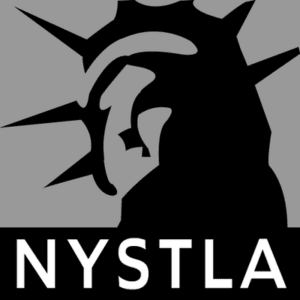Losing a loved one is one of the most difficult experiences a person can go through, and when that loss is due to someone else’s negligence or wrongdoing, the pain can be even harder to bear. New York, like other states, provides legal recourse for families of victims through wrongful death claims. These claims offer surviving family members the chance to recover damages for the emotional, financial, and practical impacts of their loss. Understanding the complexities of wrongful death laws in New York is crucial for those seeking justice for their loved ones. This guide will take a closer look at what constitutes wrongful death, who can file a claim, what damages are recoverable, and the legal process involved.
What is Wrongful Death in New York?
Wrongful death occurs when a person dies as a result of another party’s negligent, reckless, or intentional actions. New York defines wrongful death as any death caused by a wrongful act, neglect, or default that would have entitled the deceased to file a personal injury lawsuit had they survived. This means that the death must have been preventable and due to a breach of duty by the responsible party. These cases often arise from incidents such as car accidents, medical malpractice, workplace accidents, defective products, and criminal acts.
In New York, wrongful death claims are intended to hold the responsible party accountable and to compensate the family for their loss. However, the laws governing these claims are nuanced and require a deep understanding of legal procedures and requirements. It is essential to know who is eligible to file a claim and what needs to be proven in order to have a successful case.
Who Can File a Wrongful Death Claim in New York?
Not everyone impacted by the loss of a loved one can file a wrongful death claim in New York. Under state law, only the personal representative of the deceased’s estate has the legal standing to bring forward a wrongful death lawsuit. This person is often named in the decedent’s will or appointed by the court if no will exists. While the claim is filed by the personal representative, it is done so on behalf of the surviving family members, and any compensation recovered is distributed to them according to the court’s determination.
The family members who may benefit from a wrongful death claim typically include the spouse, children, and parents of the deceased. If the deceased has no spouse, children, or parents, other relatives who were financially dependent on the deceased, such as siblings or grandparents, may also be eligible for compensation. It is important to note that friends or other non-relatives, no matter how close they were to the deceased, are not permitted to recover damages under New York’s wrongful death statute.
Common Causes of Wrongful Death Cases in New York
Understanding the complexities surrounding wrongful death cases is essential for anyone navigating the legal system in New York. The loss of a loved one is a profound and life-altering event, especially when that loss is due to the negligent or wrongful actions of another. Wrongful death cases arise when an individual’s death is caused by the reckless, negligent, or intentional conduct of another person or entity. In New York, these cases are governed by specific statutes, and understanding the common causes can help individuals recognize when they may have a valid claim.
Medical Malpractice and Wrongful Death
Medical malpractice is one of the leading causes of wrongful death in New York. Medical professionals are entrusted with the health and well-being of their patients, and when they fail to meet the required standard of care, the consequences can be fatal. Wrongful death claims related to medical malpractice can arise from various situations, including surgical errors, misdiagnosis, delayed diagnosis, and medication errors.
Surgical errors, for instance, occur when a surgeon makes a mistake during a procedure that leads to the patient’s death. These errors can include operating on the wrong body part, leaving surgical instruments inside the patient, or performing a procedure incorrectly. Misdiagnosis or delayed diagnosis can also lead to wrongful death when a healthcare provider fails to correctly identify a life-threatening condition, resulting in the patient not receiving the necessary treatment in time. Additionally, medication errors, such as prescribing the wrong medication or dosage, can have deadly consequences.
In these cases, proving that the medical professional’s actions directly led to the death of the patient is crucial. This often requires the testimony of other medical professionals who can establish that the standard of care was not met.
Motor Vehicle Accidents and Wrongful Death
Motor vehicle accidents are another significant cause of wrongful death in New York. The state’s roads and highways can be perilous, and when drivers act recklessly, the results can be catastrophic. Wrongful death claims in this context often arise from situations involving drunk driving, distracted driving, speeding, and other forms of negligent behavior on the road.
Drunk driving remains a leading cause of fatal accidents in New York. Despite strict laws and public awareness campaigns, some individuals continue to get behind the wheel while intoxicated, putting everyone on the road at risk. Distracted driving, particularly due to the use of smartphones and other electronic devices, has also seen a rise in fatal accidents. When drivers take their attention off the road, even for a few seconds, the consequences can be deadly.
Speeding is another common factor in wrongful death cases. Drivers who exceed the speed limit or drive too fast for road conditions are more likely to lose control of their vehicle or be unable to stop in time to avoid a collision. In these cases, the families of the victims may be able to pursue a wrongful death claim against the negligent driver, seeking compensation for their loss.
Workplace Accidents and Wrongful Death
Workplace accidents are yet another frequent cause of wrongful death in New York. Despite stringent safety regulations, some workplaces remain hazardous, particularly in industries such as construction, manufacturing, and transportation. When employers fail to provide a safe working environment or when safety protocols are not followed, fatal accidents can occur.
Construction sites are particularly notorious for their potential hazards. Falls from heights, being struck by falling objects, and equipment malfunctions are common causes of fatal accidents on construction sites. Similarly, in manufacturing settings, workers may be exposed to dangerous machinery, toxic substances, or other risks that can lead to fatal injuries.
When a worker dies as a result of a workplace accident, their family may have the right to file a wrongful death claim against the employer, a contractor, or even the manufacturer of faulty equipment. These cases can be complex, as they often involve multiple parties and require a thorough investigation to determine who is liable for the death.
Defective Products and Wrongful Death
Defective products can also lead to wrongful death cases in New York. When manufacturers, designers, or distributors fail to ensure that their products are safe for consumer use, they can be held liable if those products cause a fatality. Wrongful death claims related to defective products can involve a wide range of items, including automobiles, medical devices, household appliances, and even toys.
Automobile defects, such as faulty brakes, defective airbags, or tire blowouts, have been responsible for numerous wrongful deaths. When a vehicle malfunction leads to a fatal accident, the manufacturer of the defective part or the entire vehicle can be held accountable. Similarly, medical devices that fail or malfunction can result in the death of a patient. In these cases, the manufacturer of the device may be liable for producing a dangerous product.
In wrongful death cases involving defective products, it is necessary to prove that the product was defective and that the defect directly caused the death of the victim. This often requires testimony and a thorough examination of the product in question.
Related Videos
How should I choose a personal injury attorney for my claim?
Insurance companies dirty tricks
Criminal Acts and Wrongful Death
Criminal acts, such as assault, homicide, or other intentional violent actions, are also common causes of wrongful death in New York. When an individual dies as a result of a criminal act, their family may have grounds to file a wrongful death lawsuit against the perpetrator. While the criminal justice system may prosecute the offender, a wrongful death claim is a civil matter that seeks compensation for the family’s loss.
Homicide cases, in particular, often lead to wrongful death claims. Even if the perpetrator is convicted in criminal court, the victim’s family can pursue a separate civil lawsuit for wrongful death. The standard of proof in civil cases is lower than in criminal cases, meaning that even if the perpetrator is not convicted, they can still be held liable in a wrongful death lawsuit.
In addition to the perpetrator, other parties may also be held liable in cases of wrongful death resulting from criminal acts. For example, if the crime occurred on a property where security measures were inadequate, the property owner might also be held responsible.
Premises Liability and Wrongful Death
Premises liability is another area where wrongful death cases frequently arise in New York. Property owners have a legal obligation to ensure that their premises are safe for visitors. When they fail to do so and someone dies as a result, the property owner can be held liable for wrongful death. These cases often involve situations such as slip and fall accidents, drowning in swimming pools, or fatal injuries due to inadequate security.
Slip and fall accidents can be particularly dangerous, especially for older adults or those with pre-existing health conditions. When a property owner fails to address hazardous conditions such as wet floors, uneven surfaces, or poorly maintained walkways, they can be held liable if someone dies as a result of a fall.
Drowning accidents in swimming pools are another common cause of wrongful death. Property owners who do not take adequate measures to secure their pools, such as installing fences or providing proper supervision, can be held responsible if a fatal drowning occurs. Additionally, in cases where a lack of security contributes to a fatal injury, such as in cases of assault on poorly lit or inadequately monitored properties, the property owner may be held liable for wrongful death.
Proving Wrongful Death in New York
In order to prevail in a wrongful death lawsuit, certain legal elements must be established. These elements are crucial in demonstrating that the death was caused by another party’s wrongful actions and that compensation is warranted. First, it must be shown that a death occurred. This may seem obvious, but official documentation such as a death certificate is necessary to confirm the passing of the individual.
Second, it must be proven that the death was caused by the wrongful conduct of the defendant. This involves showing that the defendant had a duty of care to the deceased, that the defendant breached this duty, and that the breach directly caused the death. For instance, in a car accident case, it would need to be shown that the at-fault driver was negligent in some way, such as by speeding or driving under the influence, and that this negligence resulted in the fatal crash.
Third, the plaintiff must demonstrate that surviving family members have suffered measurable damages as a result of the death. This can include both economic losses, such as lost income and medical expenses, and non-economic losses, such as the emotional pain and suffering of losing a loved one. These damages must be backed by evidence, such as financial records and testimony.
Recoverable Damages in New York Wrongful Death Cases
New York’s wrongful death laws allow for the recovery of both economic and non-economic damages, though the latter is more limited compared to other states. Economic damages are those that can be calculated in monetary terms and typically include things like medical expenses incurred before the decedent’s death, funeral and burial costs, lost wages and benefits that the deceased would have provided to their family, and the value of services the deceased would have contributed, such as childcare or household maintenance.
While economic damages are more straightforward, New York also allows for certain non-economic damages, although they are more restrictive than in other states. Unlike many other states, New York does not allow for the recovery of damages based on the emotional suffering of the surviving family members. Instead, non-economic damages focus on the loss of companionship, guidance, and nurturing that the deceased would have provided to their dependents, particularly children.
It is important to note that New York does not award punitive damages in wrongful death cases. Punitive damages are intended to punish the defendant for particularly egregious behavior and are not allowed under the state’s wrongful death laws.
The Statute of Limitations for Wrongful Death Claims in New York
A critical aspect of any legal claim is the statute of limitations, which is the time limit within which a lawsuit must be filed. In New York, the statute of limitations for wrongful death claims is two years from the date of the deceased’s death. This means that the personal representative has two years to file the lawsuit on behalf of the family. If the claim is not filed within this time frame, the court will likely dismiss the case, and the family will lose the opportunity to seek compensation.
There are a few exceptions to the two-year statute of limitations. For instance, if the wrongful death was caused by a crime, the statute of limitations may be extended in certain circumstances, particularly if the criminal case is ongoing. Additionally, if the death was the result of medical malpractice, the statute of limitations may be extended under certain conditions. It is important to consult with an attorney to understand the specific time limits that apply to your case.
How to Prove Liability in a Buffalo, NY Wrongful Death Case
Losing a loved one is one of the most devastating experiences a person can go through. When that loss is due to someone else’s negligence or wrongful actions, it becomes even more difficult to bear. In Buffalo, New York, as in many other places, a wrongful death lawsuit can be pursued to seek justice and compensation for the loss of a loved one. However, successfully proving liability in a wrongful death case can be complex and challenging. In this blog post, we will explore the key steps and strategies to help you prove liability in a Buffalo, NY wrongful death case.
Establish Duty of Care
The first and crucial step in proving liability is to establish that the defendant owed a duty of care to the deceased person. Duty of care is a legal obligation that individuals or entities have to act reasonably and responsibly to prevent harm to others. In wrongful death cases, it is essential to show that the defendant had a duty of care towards the deceased, such as in cases of medical malpractice, product liability, or automobile accidents.
Show Breach of Duty
Once you’ve established the duty of care, the next step is to demonstrate that the defendant breached that duty. To do this, you need to provide evidence that shows how the defendant’s actions or negligence directly led to the death of your loved one. This may involve presenting medical records, eyewitness testimony, or expert opinions to support your claim.
Prove Causation
Causation is a critical element in a wrongful death case. You must prove that the defendant’s breach of duty was the direct cause of your loved one’s death. This can be a complex task, requiring expert witnesses and a thorough analysis of the facts and circumstances surrounding the incident. Building a strong causal link is essential to hold the defendant liable.
Establish Damages
In a wrongful death case, you must demonstrate the damages suffered as a result of your loved one’s death. This includes both economic and non-economic damages such as medical expenses, funeral costs, lost wages, pain and suffering, and loss of companionship. Accurate and well-documented evidence of these damages is crucial to prove liability and secure a fair settlement or verdict.
Gather Evidence and Witnesses
Strong evidence is the backbone of any successful wrongful death case. Collecting and preserving evidence is vital to establish liability. This may include accident reports, medical records, photographs, video footage, and any other relevant documents. Eyewitnesses who can testify to the events leading to the wrongful death can also play a critical role in proving liability.
Consult with Experts
In many wrongful death cases, expert witnesses can provide valuable insights and testimony to support your claim. Experts in fields such as medicine, accident reconstruction, and forensic analysis can help establish the defendant’s breach of duty and causation. Their professional opinions can carry significant weight in court.
Seek Legal Representation
Navigating the legal complexities of a wrongful death case can be overwhelming, especially while grieving. Hiring an experienced attorney who focuses on wrongful death cases is highly advisable. An attorney can guide you through the legal process, help gather evidence, consult experts, and advocate on your behalf to prove liability and secure a fair settlement or verdict.
Related Videos
How should I choose a personal injury attorney for my claim?
Insurance companies dirty tricks
The Legal Process of Filing a Wrongful Death Claim
Filing a wrongful death claim in New York involves several steps, and it is essential to follow the legal procedures carefully to ensure the best chance of success. First, the personal representative of the estate must be identified or appointed by the court. Once this is done, a formal complaint must be filed in the appropriate court, outlining the facts of the case and the damages being sought.
During the litigation process, both sides will engage in discovery, where evidence is exchanged and witnesses are interviewed. This can be a lengthy process, as both parties gather the necessary information to support their claims. In some cases, wrongful death claims are resolved through settlements, where the defendant agrees to pay compensation without going to trial. However, if a settlement cannot be reached, the case will go to court, where a judge or jury will decide the outcome.
The legal process can be complex and emotionally draining, which is why having an experienced attorney to guide you through each step is invaluable. They can ensure that all legal requirements are met, that deadlines are adhered to, and that the case is presented as strongly as possible.
How a Wrongful Death Attorney Can Help
Dealing with the aftermath of a wrongful death is overwhelming, and the legal aspects can be difficult to navigate on your own. An attorney experienced in wrongful death claims can provide essential support and guidance throughout the process. They can help gather evidence, identify potential defendants, calculate the full extent of damages, and negotiate with insurance companies or opposing counsel to reach a fair settlement. If a settlement cannot be reached, they are prepared to represent the family in court.
It is important to remember that wrongful death claims are not just about seeking financial compensation; they are also about holding the responsible party accountable and ensuring that similar incidents do not happen to others in the future. An attorney can help you achieve this goal while also securing the financial support your family needs to move forward.
If you have lost a loved one due to someone else’s negligence or wrongdoing, it is essential to seek legal guidance as soon as possible. The Nicotra Law Firm, PC understands the pain and difficulty that families face in these situations and is here to help you navigate the legal process with compassion and experience. Contact The Nicotra Law Firm, PC today to discuss your case and learn how we can assist you in seeking the justice and compensation your family deserves.








